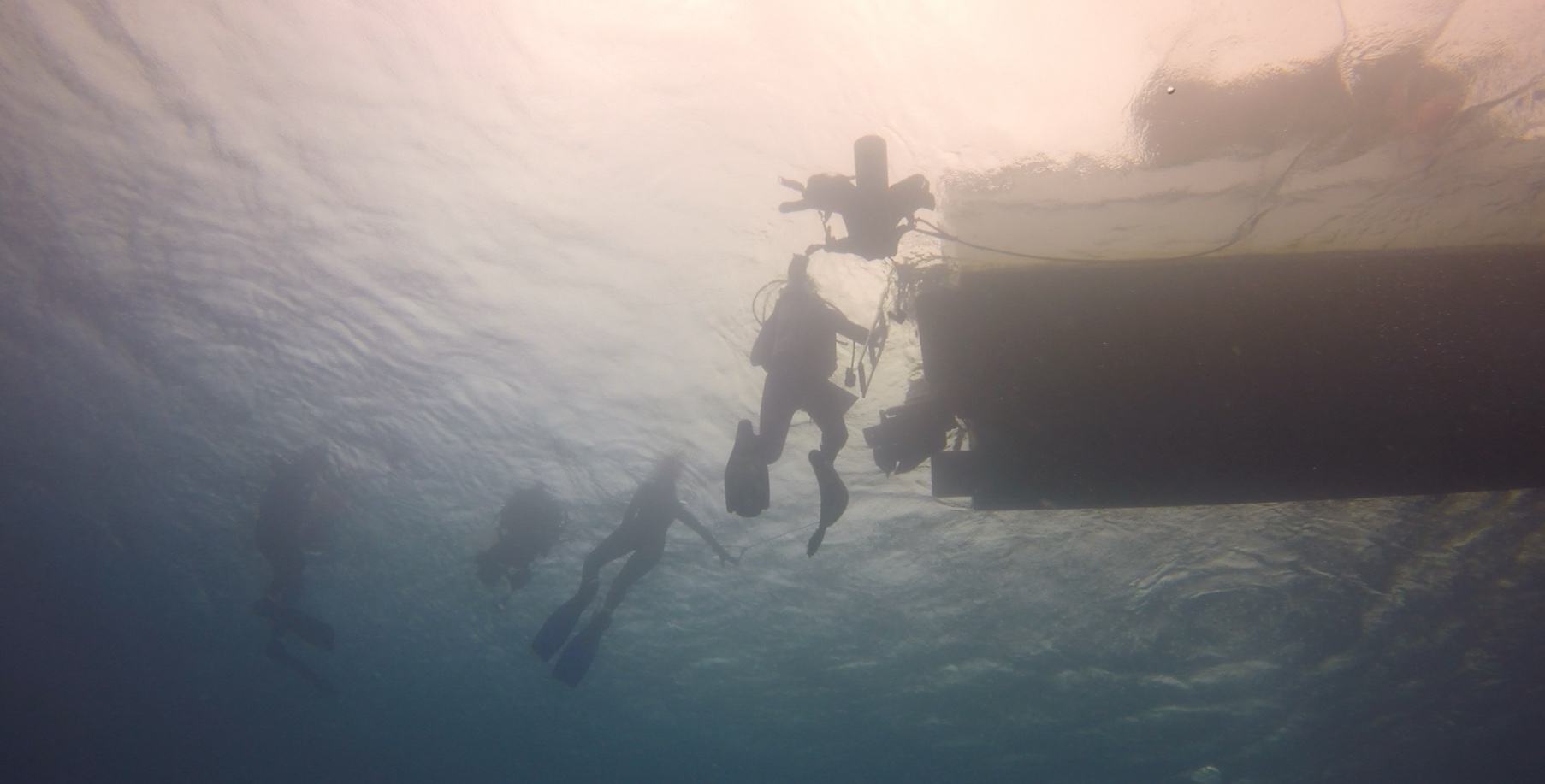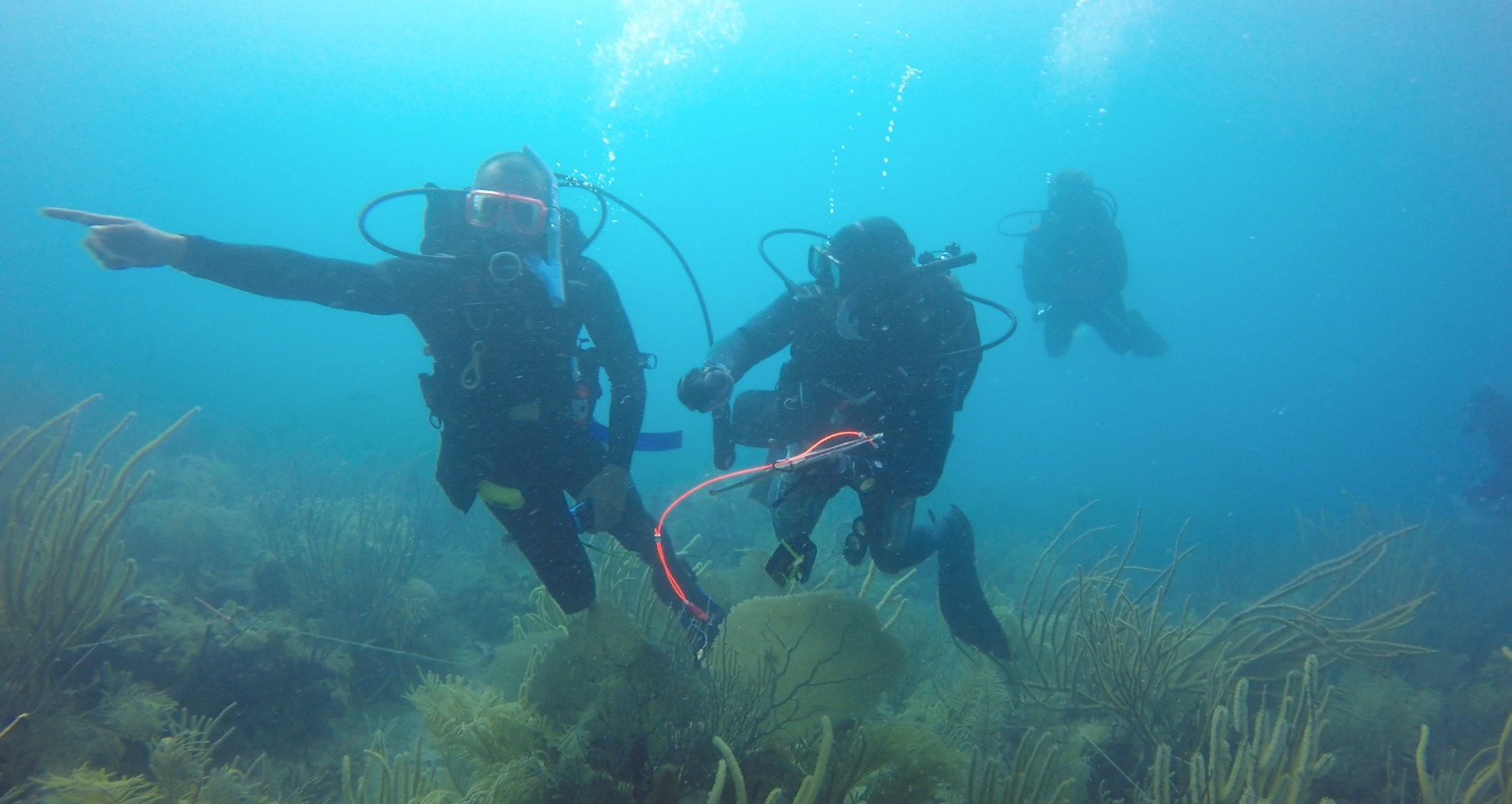Differently from previous missions involving numerous people to help set the experiments, this time the team consisted of a streamlined group of 6 researchers able to perform all tasks associated with the current monthly sampling. Barely one month after the experiment set up in the reef, our main concern was the level of survival of the coral fragments, so we checked on every fragment individually and took graphic data for morphometric analyses.
While our arrival to Culebra was greeted by high seas and strong winds, work above and underwater was surprisingly smooth. Our experimental plots were intact and coral mortality was below 15%. This was a remarkable feature, as studies dealing with coral fragments derived from nurseries usually report up to 30% mortality during the first-month post-out planting. Most of the surviving fragments looked healthy and showed signs of growth and ramification, but there were signs of algae and cyanobacteria proliferation in our Carlos Rosario site (closer to the main Culebra Island). This could be related to the increase in terrestrial runoff caused by the recent rain, worsened by several fires that have been occurring in the island during the last months. Consequently, we collected algal samples to evaluate potential increases in nutrients linked to such phenomena.
Overall, this trip was successful in all aspects except for one thing, coined now as the “the pizza paradigm”. Every day, after working in the reef, another challenge starts in the form of finding affordable dinner in the island. The only place consistently open is a Pizza Restaurant, however, pizza is fun when that is a choice you make (not when it becomes an imposed dinner every night!). Next time we are making our own BBQ dinner.
We all are very excited about the progress of this project, and will continue to work hard to obtain results that improve our understanding of coral reefs responses to global change.












